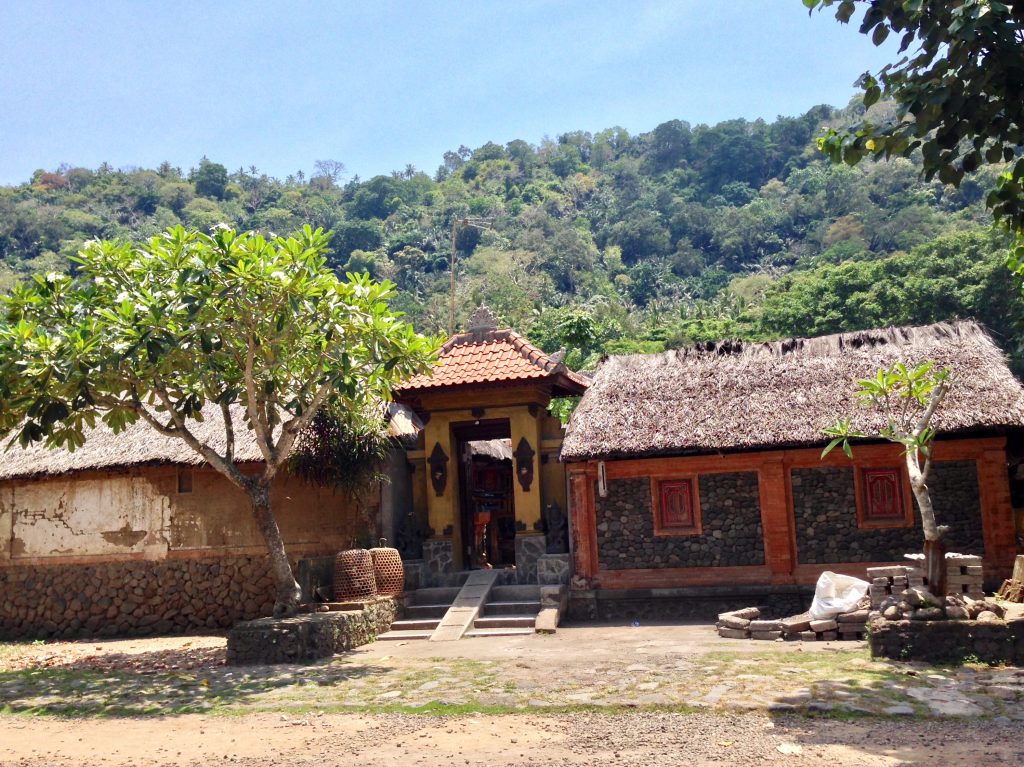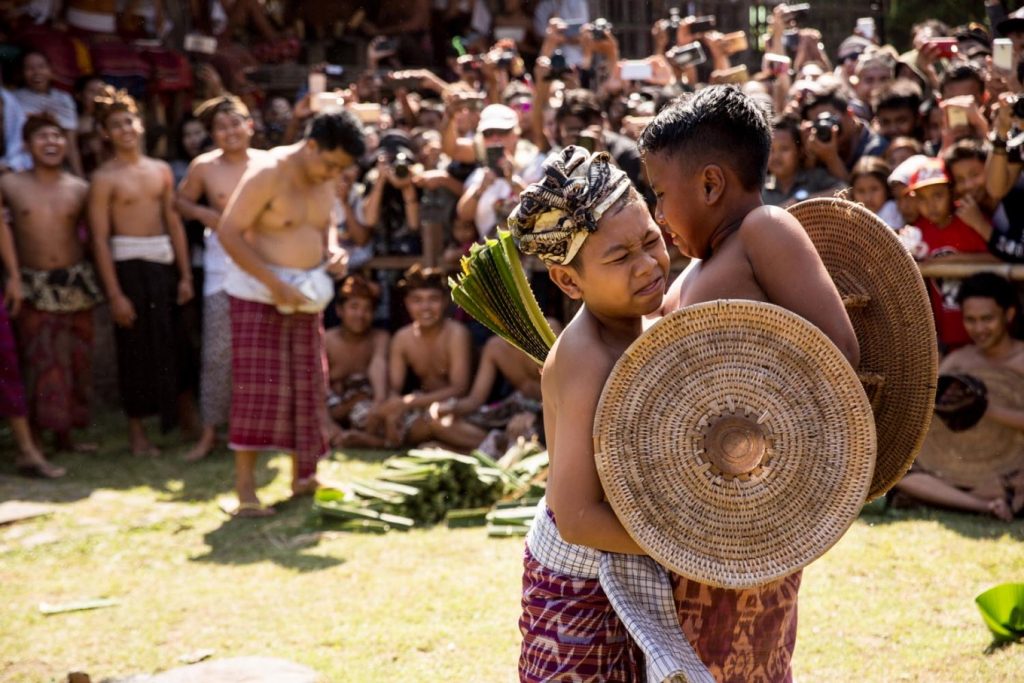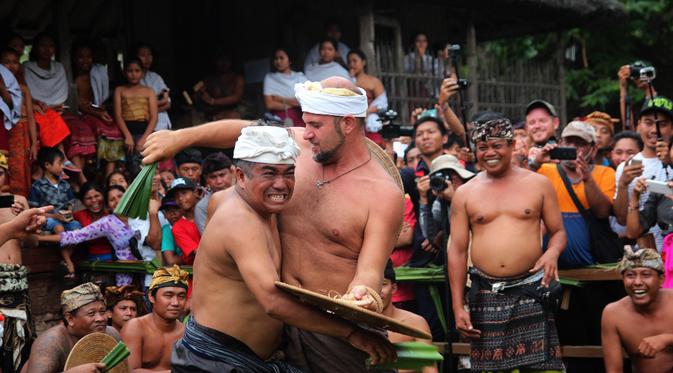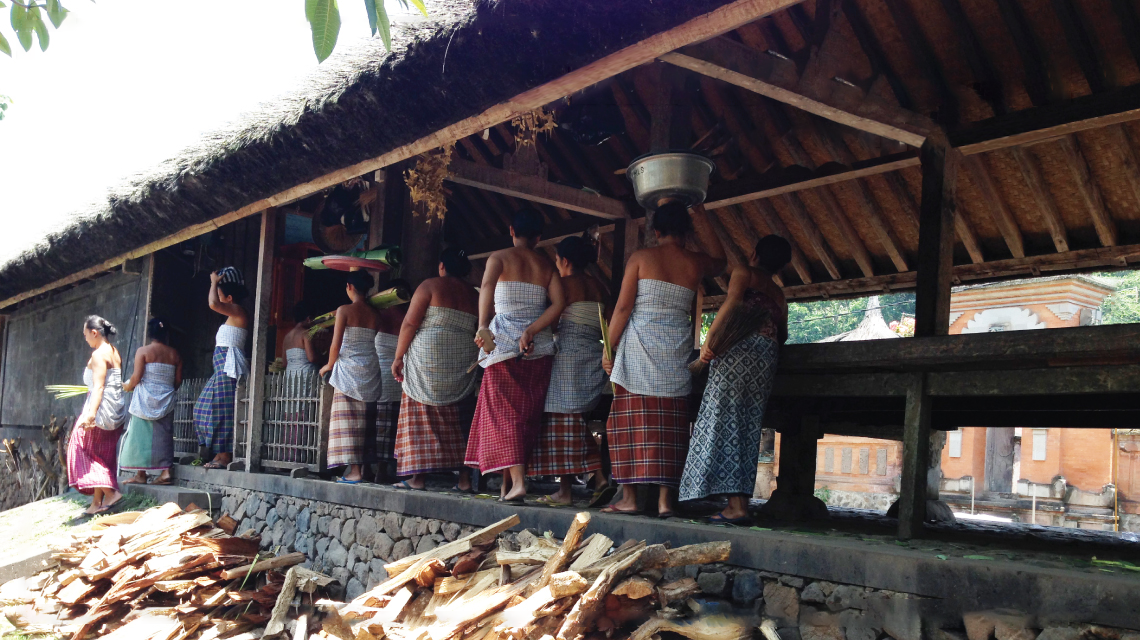Take a journey two hours away from Legian to the eastern part of Bali and you might find yourself in Karangasem regency. An area less traveled by mainstream tourists. If you drive a little further and off the main Candi Dasa road, you might stumble upon Desa Tenganan. Desa translates as village in the Indonesian language.
Tucked between the mountains is Desa Tenganan. A village untouched by the ever-evolving modernity happening across the globe. What you will find here are traditional Balinese houses and ways of life that seemed frozen and undisturbed since ancient times.

The story of Pandan War
One of these old-aged rituals is Pandan War or makare-kare. Pandan itself is a plant commonly found in tropical countries, especially in Indonesia. This multi functional plant is also used for cooking.
The Tenganan residents are believed to be the native Balinese. They are also known as Bali Aga or indigenous Balinese. The majority of Hinduism belief and culture commonly found in Bali today, originates from the Kingdom of Majapahit in Java. That is also why there are differences between the culture and belief system in Tenganan to the rest of Bali. For example, the Tenganan people don’t adhere to the caste system. Nyepi or silence day is also unknown to the Bali Aga people.
The majority of Balinese worship the Hindu triumvirate. This includes Brahma the creator, Vishnu as the sustainer, and Shiva the destroyer. Yet the main God for the Bali Aga people is Indra, the God of war. The Pandan War itself is born out of the battle of Indra against the cruel king, Maya Denawa, who once ruled Tenganan. The king forbade its people to worship Indra and believed he himself is the God. Thus, Indra came down to earth and put an end to Maya Denawa’s tyranny.
A tradition you shouldn’t miss
Nowadays, Pandan War has become an annual tradition as a tribute to Lord Indra. The men of Desa Tenganan will battle each other with pandan leaves and rattan shields. The men will only wear a traditional udeng on their head; cover their bottom part with sarong, and expose the upper body part. It might appear to be intense, but it has become a coming-of-age ritual for young boys in the village.

Image courtesy: The Jakarta Post
People outside of the village weren’t allowed to witness the ritual up until 1930’s. But today, everyone is welcome to be a spectator. It even invites male visitors and tourists to take part in the battle.

Image courtesy: Liputan6
This year’s Pandan War has passed, but do keep an eye for next year’s schedule so you can plan ahead. The event should take place in the month of June, although dates may vary based on their traditional calendar. Desa Tenganan itself welcomes visitors all-year round, so you can still add it to your Bali’s sightseeing list.


No comments